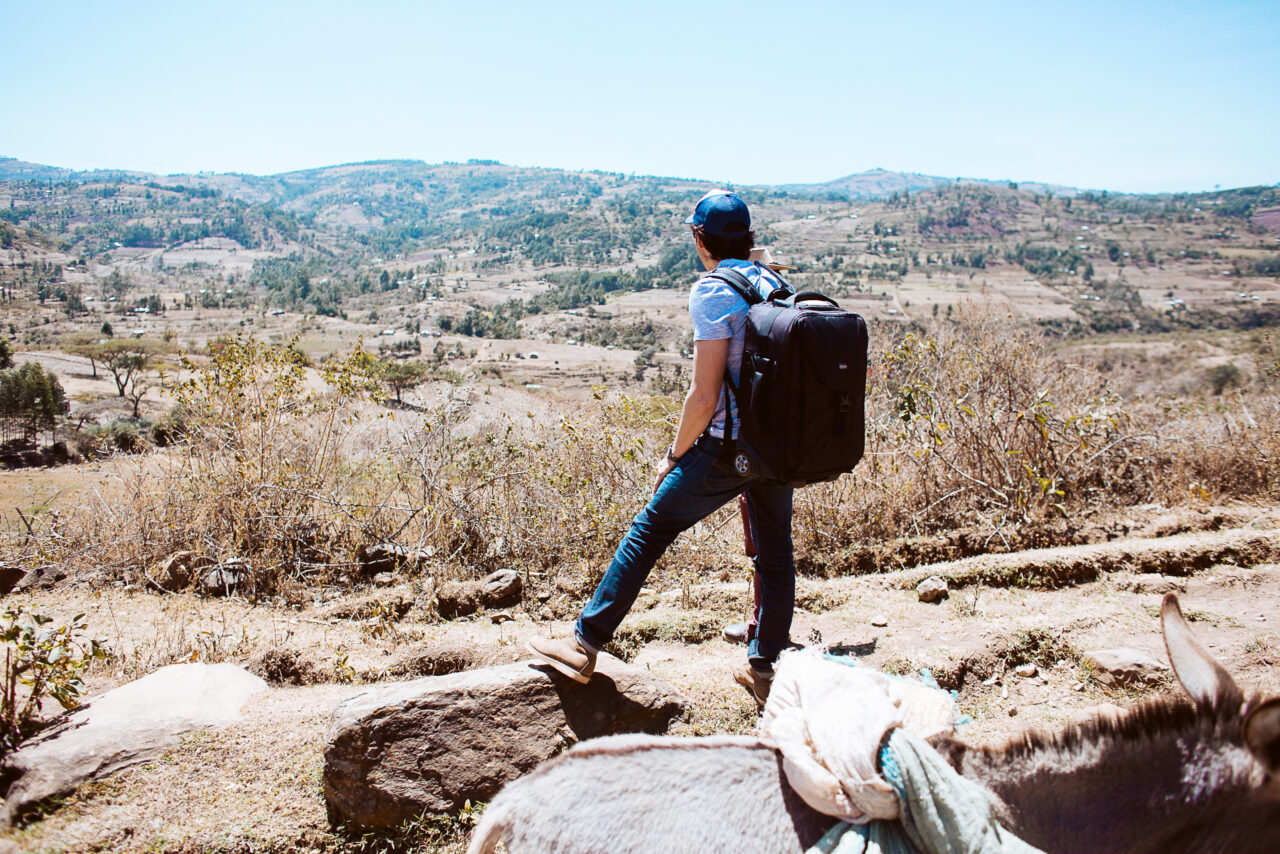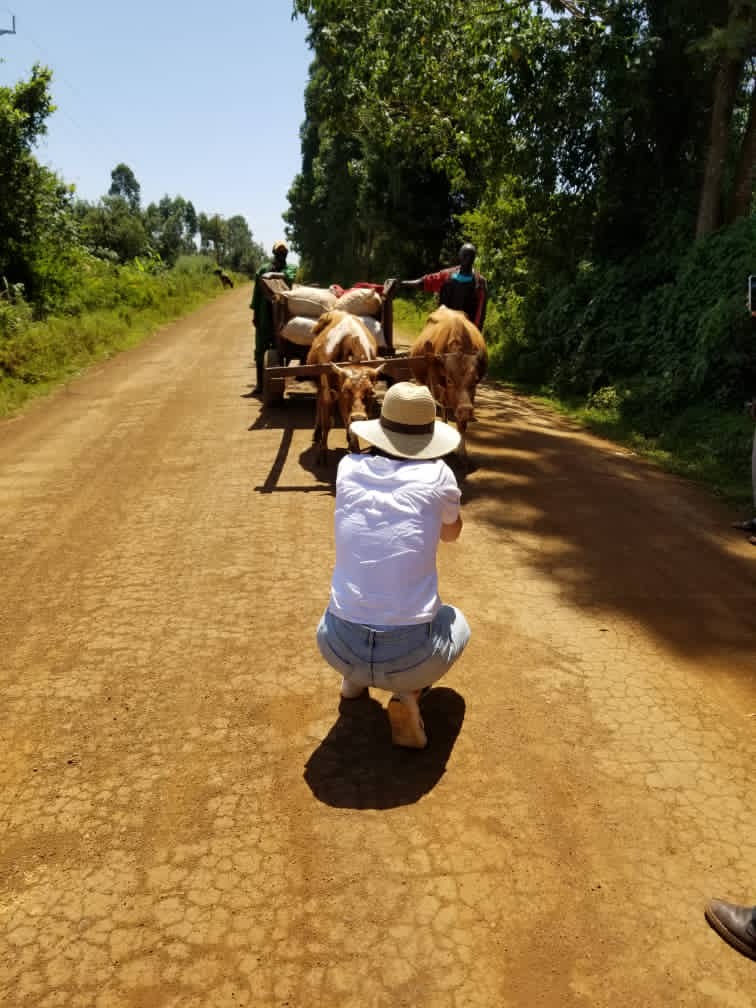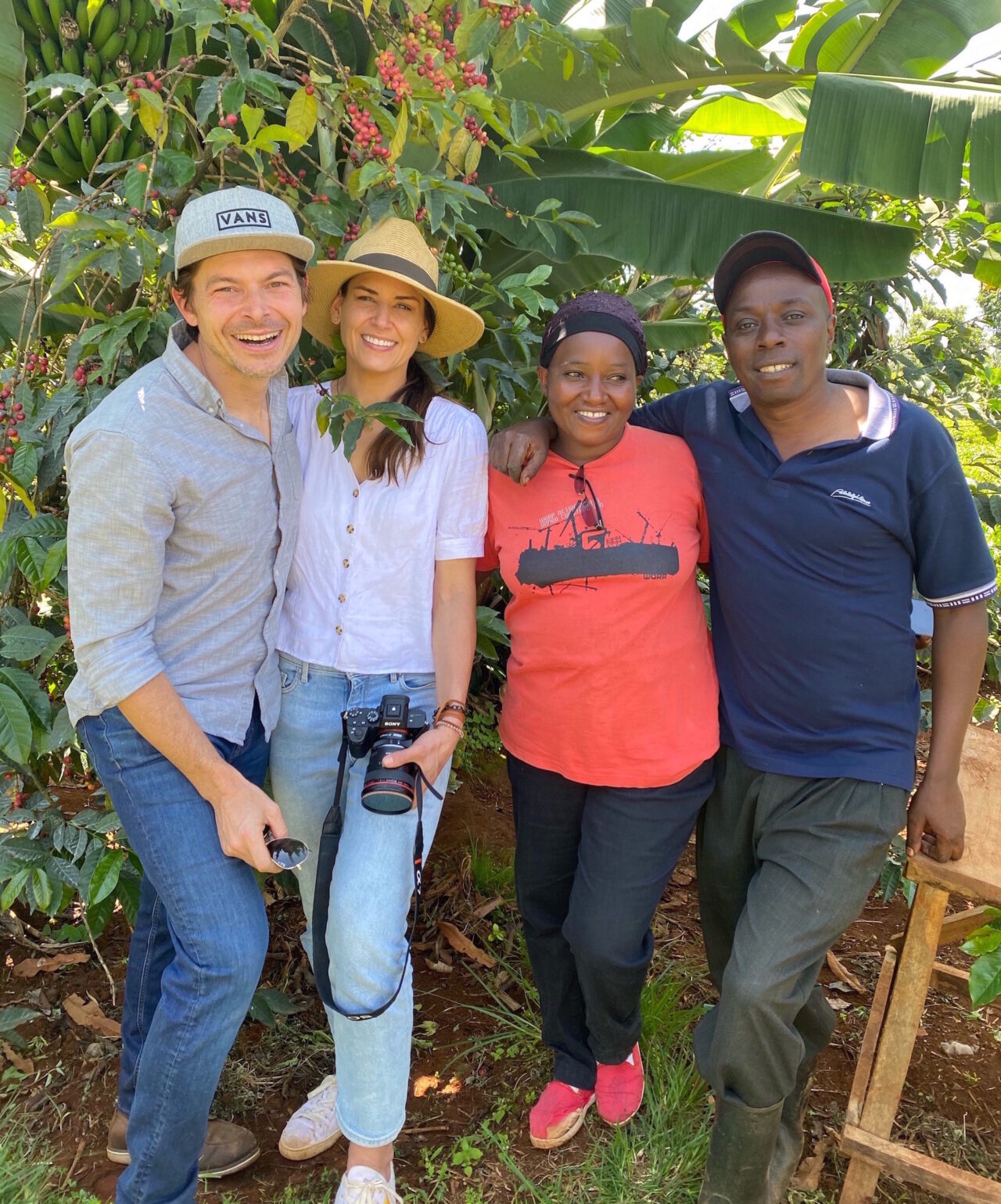written by Ben Carlson, co-founder of Long Miles Coffee.

When Kristy and I started Long Miles Coffee we never dreamed of doing anything beyond producing coffee outside the small village of Bukeye in the high mountains of Burundi. Ten years after our first days in Burundi we find ourselves with three washing stations in Burundi and fresh into the inaugural season of Long Miles Kenya.
Long Miles Kenya is a four year old idea that really started to become a dream and vision for Long Miles Coffee over the past couple years. As COVID gripped the world, I really didn’t see the possibility of our Kenya launch. What I didn’t account for was our Kenyan partner, Haron Wachira, and his capacity and organizational ability to accelerate our vision into reality.
Down the road I’ll share more about how and why we started Long Miles Kenya as well as how we elected to do so in the epicenter of what is Kenya’s finest growing area on the slope of Mount Kenya in central Kenya. What I want to share here is what we have found as we launched into production.
I really wanted to see just how much SL 28 and 34 were still on the slopes of the mountain. On my last exploratory trips, I’ve found Batian and Ruiru being pushed hard on farmers across Kenya. While those Hybrids are quite good, they don’t have the “wow” factor that many in the speciality coffee world have come to love and desire in Kenyan coffee that we find in the SL varieties.
I had our washing station separate two lots from our Kirinyaga farm and also two lots from the neighbors we are leasing land from to produce our micro-lots. These lots will represent our launch into Kenyan coffee and showcase the difference between the Hybrids ands SLs.

Kristy and I are visiting our different neighbors and hearing their story of life and coffee. What we’ve heard is person after person frustrated with the price they are getting for their coffee. For all the $3-5 cups of Kenyan coffee they hear about being consumed around the world they continue to struggle to even maintain the price they were receiving ten years ago. On top of this, labour prices have increased for harvesting and maintaining the coffee and inputs have drastically increased in cost. “Why keep producing coffee?” many ask. Us working alongside these neighbors to harvest and produce coffee this season gives them some hope and it doesn’t impact their neighbors, they tell me. “How sustainable is coffee in Kenya when only a handful of us receive a better price and help?” And then I request more SL coffee… and I’m taken into the fields and shown the difference between the hybrids and the SL plots. The Hybrids are heavy with cherry and have no noticeable fungus, bugs or issues. The disappearing SL plots are producing half as much and suffering with fungus, insect damage, and CBD (Coffee Berry Disease). If quality in the cup isn’t rewarded to the farmers, I fully understand why we are going to see the end of any SL coffee from Kenya.

And yet…there is hope for the SL. If we didn’t see it, I would have to call it a myth or legend. Farmer Joseph has invited us to see his organic SL farm. He’s not one of our neighbors so we are not producing coffee with him, but his story is too unreal not to take a drive to see him. Joseph is harvesting 100kg of cherry per tree (no, this isn’t a typo) and it’s fully organic! We are taking notes and listing the protocols needed to achieve this, and as we wrap up harvest in year one of Long Miles Kenya you can be sure that we are going to be implementing the same strategy as Joseph did to produce his 100kg SL harvest.
I don’t have the space or time to dive into production and quality compromises we have observed in the surrounding factories. What I can say is that with Seth and Raphael coming in from Burundi, and Jimmy arriving for us from Uganda, we are helping implement quality control procedures that we use in Burundi along with an excellent and dedicated management team in place under Haron. Our first taste from the first day’s harvest just happened and all that I can say is that I hope this initial harvest can all taste this good. If it does, my hopes for some of Kenya’s finest coffee will be coming out of Long Miles Kenya washing station.

